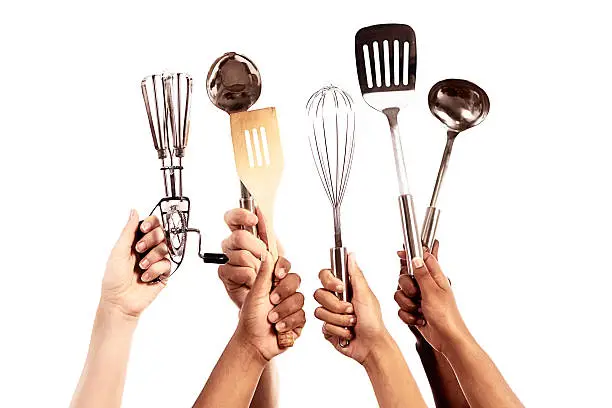Jewish tradition imagines G-d/dess as one who cares for all creatures. According to the Babylonian Talmud, “in the third three hours (of the day), G-d sits and nourishes the entire world, from the giant-horned wild oxen to the eggs of lice” (Avodah Zara 3b). But kindness to animals isn’t only something ascribed to the Divine, it’s also a characteristic of our human ancestors who walked in G-d/dess’s ways. In this article, you’ll get to meet some of the animal-loving heroes and heroines of Jewish myth.
*
Noah, Na’amah and company
It’s hard to think of biblical animal stories without thinking of Noah’s Ark. Noah, his wife, their three sons, Ham, Shem, Japeth and their wives, all have their hands more than full with caring for animals. Noah’s wife and his son’s wives aren’t named in Torah, but they are named elsewhere. Noah’s wife is called Na’amah in the midrash (Genesis Rabbah 23:3) or Emzara in the Book of Jubilees, which is an ancient Jewish text that isn’t considered canon by most Jews, but is by the Beta Israel (Ethiopian Jews) and Catholics. Shem, Ham, and Japeth’s wives are also named in the Book of Jubilees: Sedeqetelebab, Na’eltama’uk and ‘Adataneses.
Midrash Tanhuma states that “Noah was called righteous because he fed the creatures of the Holy One, blessed be He” (Midrash Tanhuma Noah 5). A wonderful midrash tells the origin story of the phoenix – or of hachol in Hebrew – which is all about Noah’s compassion for the creatures on the ark, and in the case of the phoenix, an animal’s compassion for him:
Eliezer, Abraham’s servant, asked Shem, Noah’s son: “How did you keep alive all those families of animals?” Shem said, “We had a lot of trouble in the Ark! A creature whose way was to eat by day, we fed during the day. A creature whose way was to eat by night, we fed by night… My father found a חול (chol) lying in a corner of the ark and asked: ‘Don’t you want something to eat?’ The חול (chol) said: ‘I saw your work was difficult, and did not want to cause you any trouble.’ Noah said: ‘May it be the Divine will that you never die’” (Babylonian Talmud, Sanhedrin 108b).
This midrash acknowledges the difficulty of Noah’s task, but also his dedication to it, and shows that animals are capable of showing us kindness in return.
In the children’s book A Prayer for the Earth, contemporary midrashist Sandy Eisenberg Sasso imagines the role that Na’amah had in saving the planet. She writes that when G-d/dess asked Noah to rescue two of every kind of animal, S/he asked Na’amah to collect the seeds of every type of plant and bring them on board the ark. As many vegans will know, caring for plants and caring for animals go hand in hand. If Noah’s role was caring for the animals, Na’amah’s role was caring for plants, setting the stage for the restoration of all animal habitats and our entire ecosystem.
Rebecca
Every love story needs a good “meet-cute” – you know, that part in the romantic comedy where somebody spills juice on you and then you end up together, or you end up thrown together on a road trip with somebody you don’t like, but it turns out later on that you’re made for each other… Anyhow, the Tanakh (Hebrew Bible) has some great meet-cutes, but one of the first ones is the story of Rebecca and Isaac, and it’s all about kindness towards animals. Fun fact – this is also the first time in the Torah that we learn that a husband has fallen in love with his wife (Genesis 24:67).
The story goes like this: Abraham isn’t so keen on his son marrying any of the local women, preferring instead that Isaac marry somebody from his homeland. Abraham sends his servant, Eliezer (who isn’t actually named in the Torah, but is named in the midrash), to find a wife for Isaac. Eliezer decides that he’ll devise a test to make sure that he picks the right woman:
Here I stand by the spring as the daughters of the townsmen come out to draw water; Let the maiden to whom I say, ‘Please, lower your jar that I may drink,’ and who replies, ‘Drink, and I will also water your camels’—let her be the one whom You have decreed for Your servant Isaac. Thereby shall I know that You have dealt graciously with my master (Genesis 24:13-14).
Eliezer’s test is all about finding a woman who isn’t only kind to humans, but will also care for animals. As fate would have it, a young woman named Rebecca passes the test with flying colours. In order to truly appreciate Rebecca’s kindness, it’s important to think about just how much water even one camel can drink (according to Wikipedia, a 600 kg camel can drink 200 litres of water in three minutes) and how much water weighs (one litre is almost equivalent to 1 kg). So for Rebecca to draw water for one human plus a caravan of 10 camels is really going above and beyond.
It being ancient times, Eliezer asks Rebecca’s father and brother for permission to take her to marry Isaac. To their credit, they ask Rebecca if she wants to go with Eliezer, and she replies, “I will” (Genesis 24:58). When Eliezer and Rebecca arrive back home, it appears to be love at first sight. When Rebecca sees Isaac approaching them, she falls off her camel (Genesis 24:64).
Later, we learn, “Isaac then brought her into the tent of his mother Sarah, and he took Rebecca as his wife. Isaac loved her, and thus found comfort after his mother’s death” (Genesis 24:67).
So the Bible’s first love story is all about loving animals, too.
Joseph
Joseph is known for his amazing technicolour dreamcoat, his propensity for dreams, and his incredible rise to power from imprisoned slave to Pharaoh’s second-in-command. Joseph not only predicts a famine in Egypt by interpreting Pharaoh’s dreams correctly, Pharaoh also gives Joseph the job of managing how Egypt will cope with the famine. Joseph oversees the gathering of food during Egypt’s seven years of plenty, so that it can be rationed out appropriately during the seven years of famine. Joseph is portrayed as a tactical leader, who will do what needs to be done in order to keep the country alive. But did you know that our tradition suggests that Joseph wasn’t only looking after Egypt’s human population, but also its animals?
Midrash Tanhuma, the same text that taught us about Noah’s righteousness, continues by saying:
Two men were called righteous because they fed the creatures of the Holy One, blessed be He. They were Noah and Joseph. It is written concerning Joseph: “Because they sell the righteous for silver (Amos 2:6)”, and of Joseph it is also said: “And Joseph fed (Gen. 47:12)” (Midrash Tanhuma Noah 5).
According to this text, just as Noah was considered righteous for feeding the animals, so too, was Joseph. If people weren’t going to starve in Egypt, neither were animals, if Joseph had any say in it.
Moses and Tzipporah
Our tradition is fond of “meet-cutes” that happen by wells, and that’s how Moses, the famous liberator of the Israelites, meets his future wife, Tzipporah. Moses’s behaviour is somewhat reminiscent of Rebecca’s. His regard for animals, as well as humans, is one of the things Tzipporah picks up on in their first meeting. Here’s how the story goes:
Moses has had to run away from Egypt because he has killed an Egyptian taskmaster who was beating an Israelite slave. He ends up in the land of Midian, where Tzipporah’s father, Yitro, is the priest. Tzipporah and her six sisters go to the well to draw water for their sheep. Some shepherds show up and harass Tzipporah and her sisters, driving them away from the well. Enter Moses: he stands up for Tzipporah and her sisters, protecting them from the shepherds. And then, just like Rebecca, Moses decides the animals need some care, as well, and he draws water for their sheep.
When Tzipporah and her sisters come home, Yitro asks them how they’ve returned so quickly. They answer: “An Egyptian rescued us from the shepherds,” making sure to add that, “he even drew water for us and watered the flock” (Exodus 2:19).
Yitro takes this to be a sign of great character and invites Moses over for dinner. Not long after, we celebrate the marriage of Tzipporah and Moses.
Just like with the story of Noah, Moses’s kindness to animals is reciprocated by animals themselves. A midrash recounts that when G-d/dess first brings the Manna, the magical bread that falls from the sky, to the Israelites, Moses is very clear with people that they have to collect two portions on Friday, because none will fall on Shabbat. Datan and Aviram, who are eventually part of Korach’s rebellion against Moses, seek to discredit Moses, so they go out and scatter bread on the ground under the cover of darkness. The birds come to Moses’s aid and eat up all of the bread before morning. This is the source of the folk custom to go out and feed birds on Shabbat Shira, the Shabbat where we read about the crossing of the Red Sea and the first appearance of Manna. It’s worth noting that Tzipporah’s name means “bird” in Hebrew, which makes me wonder if she had something to do with the birds’ clever plan. In my midrashic imagination, Tzipporah has cultivated a relationship with the birds, so that when she asks them to come to Moses’s aid, they are more than happy to oblige.
*
Our ancestors loved all the creatures that walked on this Earth, so we can draw inspiration from them, as we seek to better this world for all the beings that inhabit it.
*
Photo credit: Trevor Cole on Unsplash
 Kohenet Yael Tischler a ritual-weaver, Jewish educator and song leader. She is the co-founder of Yelala, a constellation of work that celebrates Earth-centred, feminist Jewish spirituality and reclaims the practices of our women/femme and folk ancestors. She holds an MA in Writing for Young People from Bath Spa University, a BA in English Literature from Columbia University and a BA in Tanakh (Bible) from the Jewish Theological Seminary.
Kohenet Yael Tischler a ritual-weaver, Jewish educator and song leader. She is the co-founder of Yelala, a constellation of work that celebrates Earth-centred, feminist Jewish spirituality and reclaims the practices of our women/femme and folk ancestors. She holds an MA in Writing for Young People from Bath Spa University, a BA in English Literature from Columbia University and a BA in Tanakh (Bible) from the Jewish Theological Seminary.

















